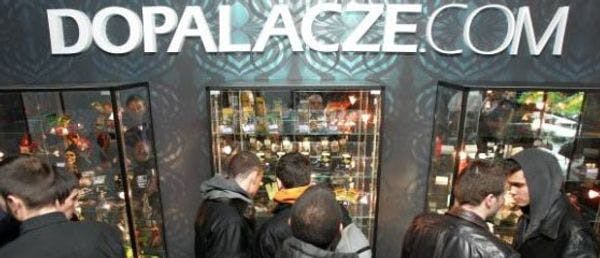Polonia: sigue el auge del mercado de los euforizantes legales
En 2010, después de dos años de auge de los establecimientos de euforizantes legales en las calles comerciales de Polonia, el Gobierno decidió reprimir con dureza este comercio. Sin embargo, a pesar de los esfuerzos, la prohibición impuesta ha tenido un impacto escaso. Más información, en inglés, está disponible abajo.
Suscríbase a las Alertas mensuales del IDPC para recibir información sobre cuestiones relacionadas con políticas sobre drogas.
In 2010, after a two-year bloom of legal highs businesses on Polish high streets, the government decided to crack down on this trade. However, despite their efforts, the imposed ban has had little effect.
After legally dubious raids on these shops -- conducted by the National Health Inspectorate and which resulted in the closure of around 1,200 such premises -- new legislation was created by parliament to effectively ban a number of new psychoactive substances (NPS). The research chemical tycoons, who earlier could be seen on the front pages of tabloids driving their sport cars, either went bankrupt or left the country to try to open similar businesses in European states with more liberal legislation.
Though the legislation was broad, it did target certain NPS by naming them specifically, as was the case with mephedrone, salvia divinorum or some synthetic cannabinoids. Inital results of the ban were heralded due to the closure of so many shops. However, while the trade disappeared from the streets of Polish towns and cities, it simply moved online.
Click here to read the full article.
Keep up-to-date with drug policy developments by subscribing to the IDPC Monthly Alert.
Temas
Regiones
Perfiles relacionados
- Talking Drugs
